Why You Shouldn’t Be Afraid of Using Machine Learning for Your Startup
So, you’ve got a great idea for a startup. But there’s just one catch; Your startup requires machine learning (ML), and to you, that feels a bit, well, overwhelming.
We’ve got some great news for you:
ML doesn’t have to be either complicated or time-consuming. In fact, there are a number of ML SaaS platforms on the market today that are intentionally designed to do the heavy lifting for you.
Here at Nyckel, we’re proud to have several startups among our customer base. For some of them, ML is the central part of their business, while for others it provides a competitive advantage. Here are just a few examples of how Nyckel and similar platforms can make it both simple and relatively painless for you to incorporate ML into your startup:
– Training with minimal data. Contrary to what you might think, 5-50 samples of data per class is plenty to get you off to a good start.
– Keeping up to date with the latest technology. No need to worry whether you are held back by using old machine learning technology. Any good AutoML Engine (a system that finds the best possible ML model given an annotated data set) will try all the latest stuff and use what works best with your data.
– Managing GPU clusters. Managed services like Nyckel take on the burden of provisioning and coordinating GPU nodes for model training, so you can focus on your data and problem.
– Auto-deploying features. Most ML platforms deploy your trained model to an elastic endpoint where it’s ready to be integrated.
Easy Ways to Use ML: Use-Case Examples
Because each startup is unique, it comes with unique challenges. Let’s look at a range of use-case examples based on different types of platform needs, along with the simple steps you can take with ML to solve each issue.
Example #1: A retail site in need of help with product discovery.
As an online retailer, it’s imperative that your customers can easily search and find what they’re looking for. Using image-to-image vector-based search, you can implement a simple “find similar” feature that presents visually similar products to the one they are looking for. You can also use text-to-image search to allow free-form text queries based on the image content rather than meta-data.

Example #2: An e-commerce site dealing with messy data from vendors.
Vendors on your site aren’t don’t always categorize their items in a way that works for your store. This can require tedious manual re-categorization when vendor data is imported into your system. To solve this problem, you can create a multiclass image or text function that auto-categorizes new entries.
Example #3: Selling physical goods.
Rf-id or bar codes are great for tracking packaged inventory. But for products like bulk food, you need a different solution. In these scenarios, a simple image classification function will often do the trick by classifying the physical product into the correct category.
Example #4: Handling returns of physical products.
Sorting out the issue and product types of returns can be time-consuming and error-prone. Instead of doing it manually, try training image classification functions to triage for you. Use specialized functions for product type and issue type for best results. For example, if you sell clothing, you can train an image classification function to detect whether the returned item is a shirt or a pair of pants, and another one to determine if the item is damaged.

Example #5: Dealing with a high amount of service tickers/customer interactions.
Are you anticipating a high amount of real-time interactions with customers? You can streamline the process by training a text classification function to triage requests, auto-answer common requests, and extract and aggregate sentiment data. Instead of dealing with each interaction case-by-case, you can now effectively deal with them in order of importance and by category.
Example #6: Dealing with physical receipts/invoices.
It’s hard to keep track of physical data without getting disorganized. Use Optical Character Recognition (“OCR”) to extract the text from the receipts and then classify the text using a text classifier.
Example #7: Hosting user-generated content
You don’t need to be Zuckerburg—or now Musk—to understand how challenging it is to manage policies around the moderation of user-generated content. Human moderation, while accurate, is expensive and inefficient. The best solution is combining the powers of text and image classification functions to weed out spam images, fake profiles, NSFW content, scams, and other problematic content and augment it with far more efficient human moderation.
The Best Players to Choose From
For folks who are new to ML, the landscape of options is both dense and wide-ranging. AWS Sagemaker, for example, could be considered an ML SaaS platform, but it’s so broad and general that it’s really more of an ecosystem than anything. Plus, it comes with a high learning curve. For this article, we narrowed our search and focused on platforms that met the following key criteria:
– “Custom ML.” We only consider platforms that allow you to do ML on your own data. We don’t consider canned (pre-trained) AI services.
– “Self-serve.” You have open access to the platform, the pricing options are transparent and easy to choose from, and there’s a range of API docs to get you up and running.
– “No ML skills required.” You aren’t required to pick a particular network architecture or other similar function that assumes you already know about ML.
– “Full-stack.” The platform includes data management, auto-ML, and deployment, making the work on your end as minimal as possible.
The following list, while not exhaustive, represents some of the best ML SaaS platforms we’ve found to date. To make it even simpler to see the differences between them, we’ve included sections for the types of input and output they support, as well as examples of use cases.
Full disclosure: I’m a co-founder of Nyckel, so you could say I’m biased. 😉 That said, I do genuinely believe in the performance of our product and believe there are other strong solutions out there that also support the unique needs of startups.
Nyckel
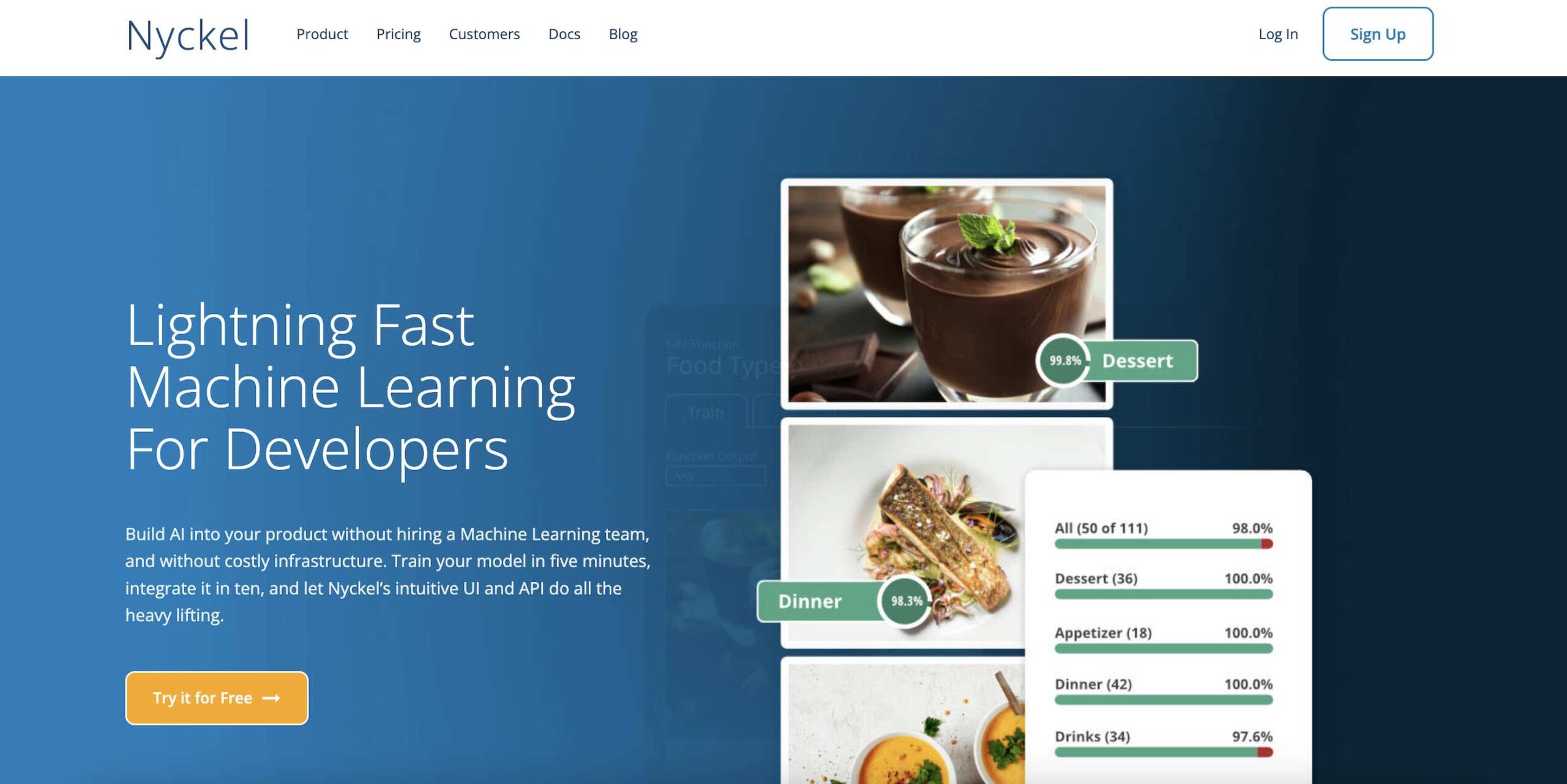
Nyckel is built around atomic ML functions and accommodates multiple types of input. All functions are fully supported by our API, allowing users with zero ML experience to quickly get started adding ML to their platform. Founded in 2021, we are one of the newest platforms on this list, and our user base is growing quickly.
Input types supported: Image, text, tabular
Output types: Classification, search, object detection, OCR
Use-case examples: Nyckel is popular with many notable platforms for content moderation – especially when it comes to eliminating spam. Our clients include Taimi, one of the world’s largest LGBTQ dating sites, as well as Gust—that platform you’re reading this post on—the world’s largest community of entrepreneurs and early-stage investors.
Cohere
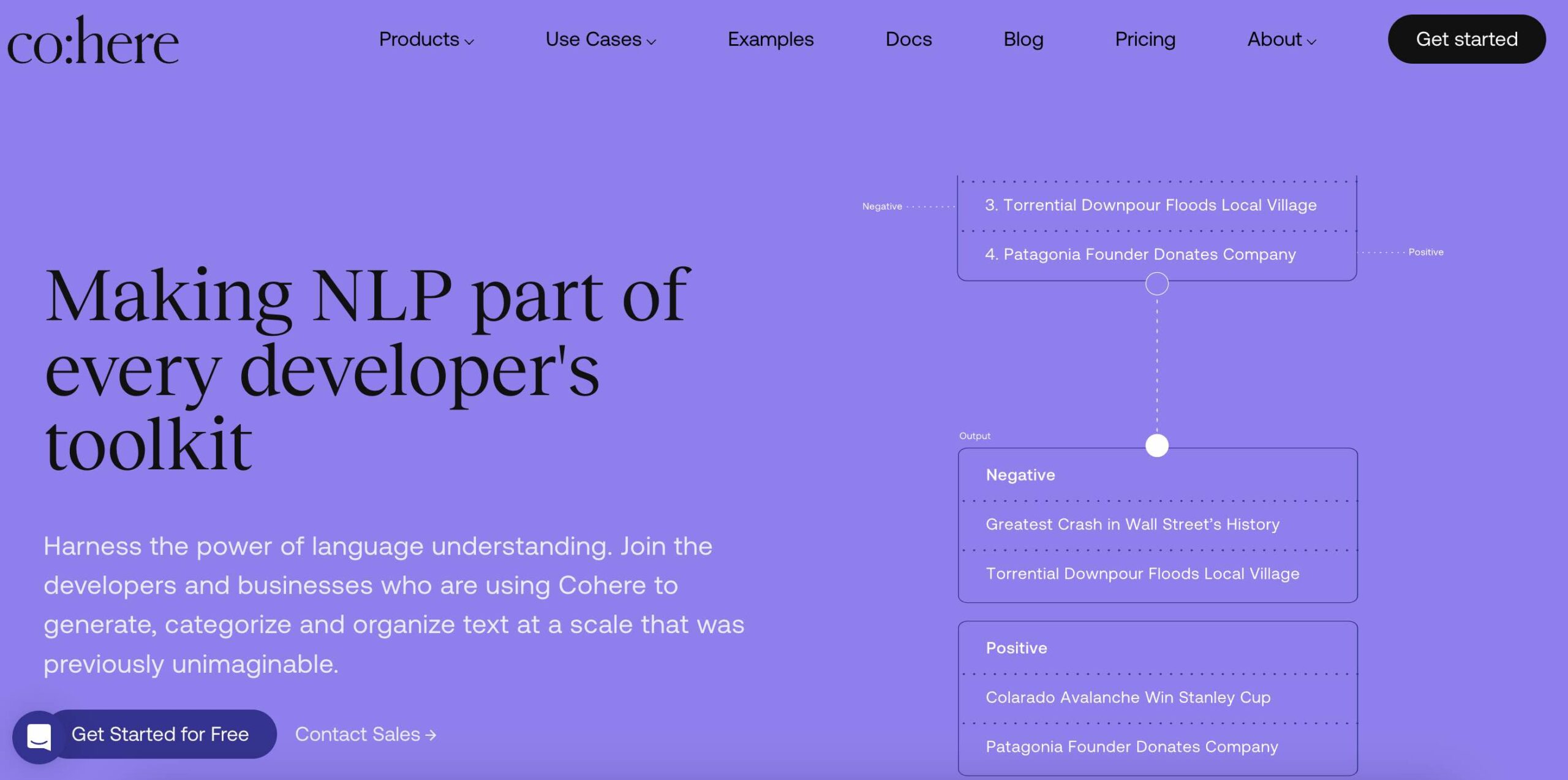
Launched in 2019, Cohere specializes in natural language processing (NLP), with its platform being powered by the latest generation of large language models. Its two products, Classify and Generate, aim to improve chat-box experiences.
Input types supported: Text
Output types: Classification, Text generation
Use-case examples: Cohere focuses on improving customer experience, including customer support, intent recognition, sentiment analysis, as well as identifying toxic language.
Ximilar

Ximilar was founded in 2016 to provide businesses with state-of-the-art Visual AI for real-life applications. It specializes in automating image modification, and its services include ready-to-use as well as custom image recognition.
Input types supported: Image
Output types: Classification, Tagging, Regression, Detection
Use-case examples: Ximilar is used by a wide range of industries, including biotech and medical, e-commerce, fashion, and real estate. Depending on clients’ needs, Ximilar can process and enhance images, enable functions for tagging/similarity searches, analyze satellite and drone footage, and much more.
Imagga

Founded in 2008, Imagga offers advanced solutions for image analysis and understanding. Its clients span a wide range of industries, and its services include image-tagging, cropping, color extraction, and facial recognition. Most of Imagga’s products are based on pre-trained models, but they do offer custom ML for image classification and search.
Input types supported: Image
Output types: Classification, Search
Use-case examples: Imagga has helped image companies like Unsplash and PlantSnap improve image search and user experience, enhance product discovery on retail sites like Deliety, and provide better visual content organization to customers like Swisscom and IntelligenceBank.
Hasty
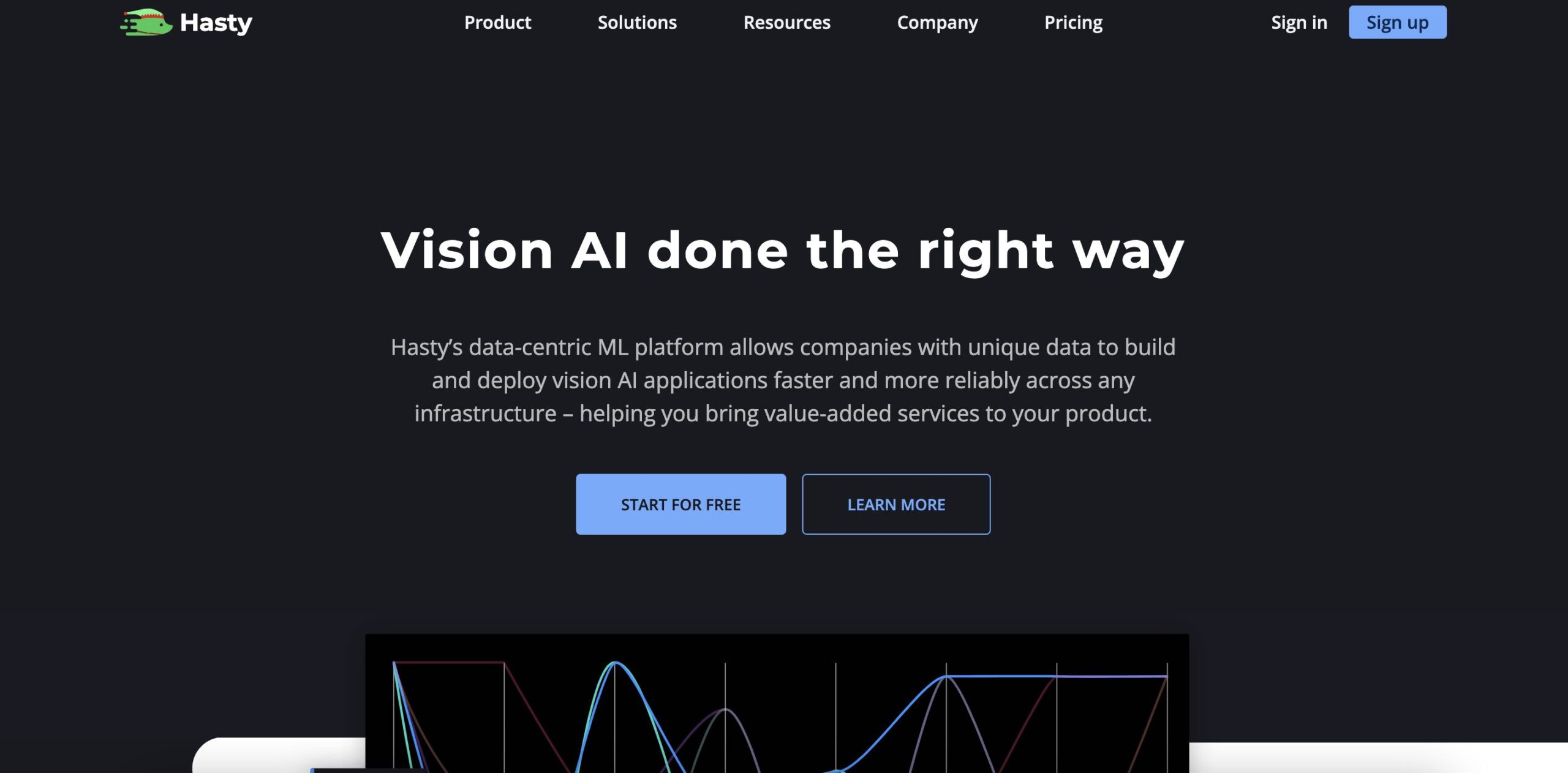
Since its launch in 2020, Hasty has become a go-to source for automated annotation. Its custom-tailored approach helps users quickly segment images. Hasty’s new AI Consensus Scoring product is designed to automate Quality Assurance (QA).
Input types supported: Image
Output types: Classification, tagging, object detection
Use-case examples: Hasty’s customer base includes mining, metallurgy, and agricultural as well as healthcare companies who have little to no previous experience with ML but need an effective, low-risk solution to improve the speed and quality of their work.
Levity
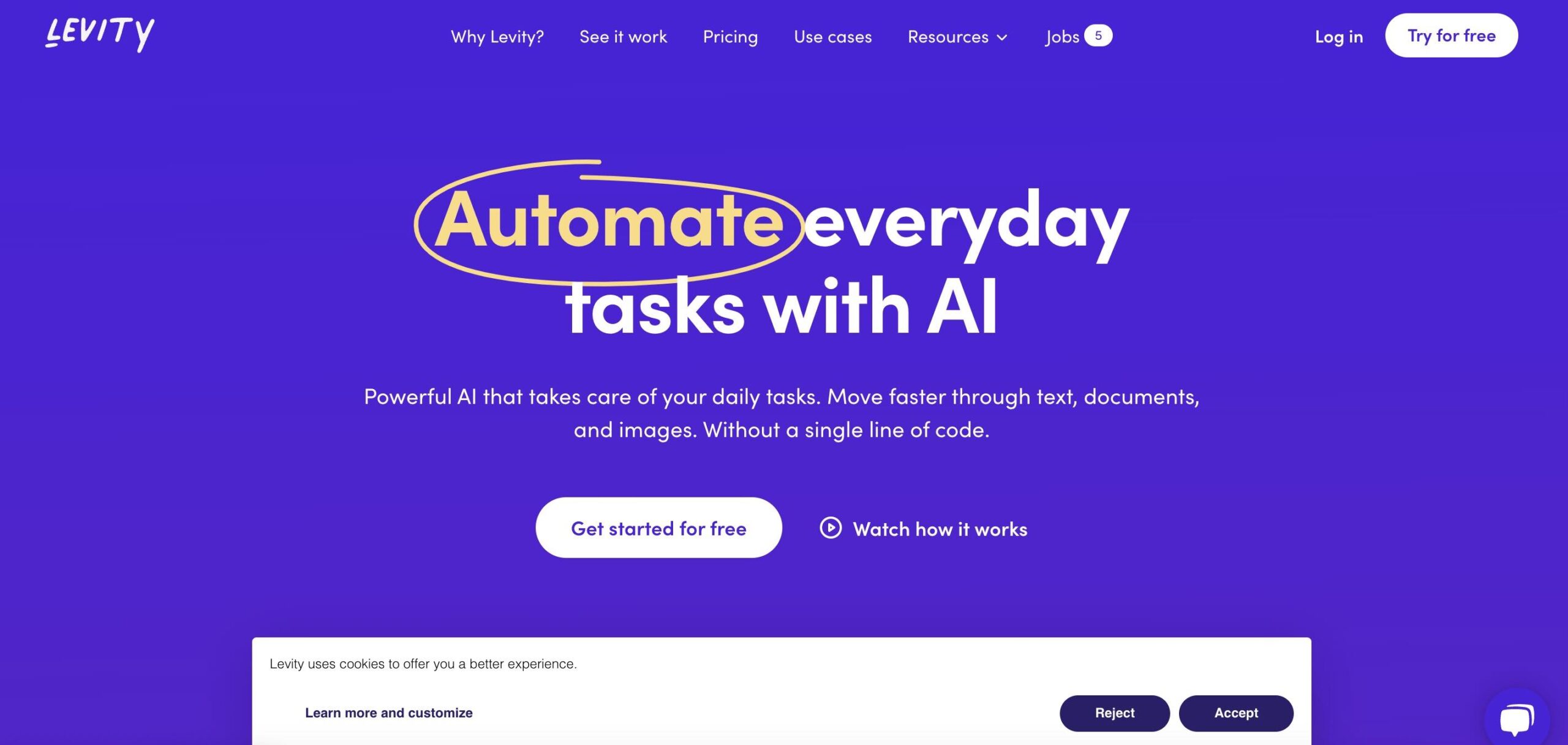
Levity has been helping users automate workflows since 2020. Specifically, it automates repetitive but important tasks that run the gamut of content moderation, auto-tagging images, analyzing text responses and sentiments, as well as categorizing anything from emails to shipping documents
Input types supported: Text, image, PDFs
Output types: Classification
Use-case examples: Real estate company Everystay has successfully used Levity’s ML tools to track thousands of user-generated photos, while animal health company Vetvo has used them to detect worm eggs in microscopic images.
MonkeyLearn
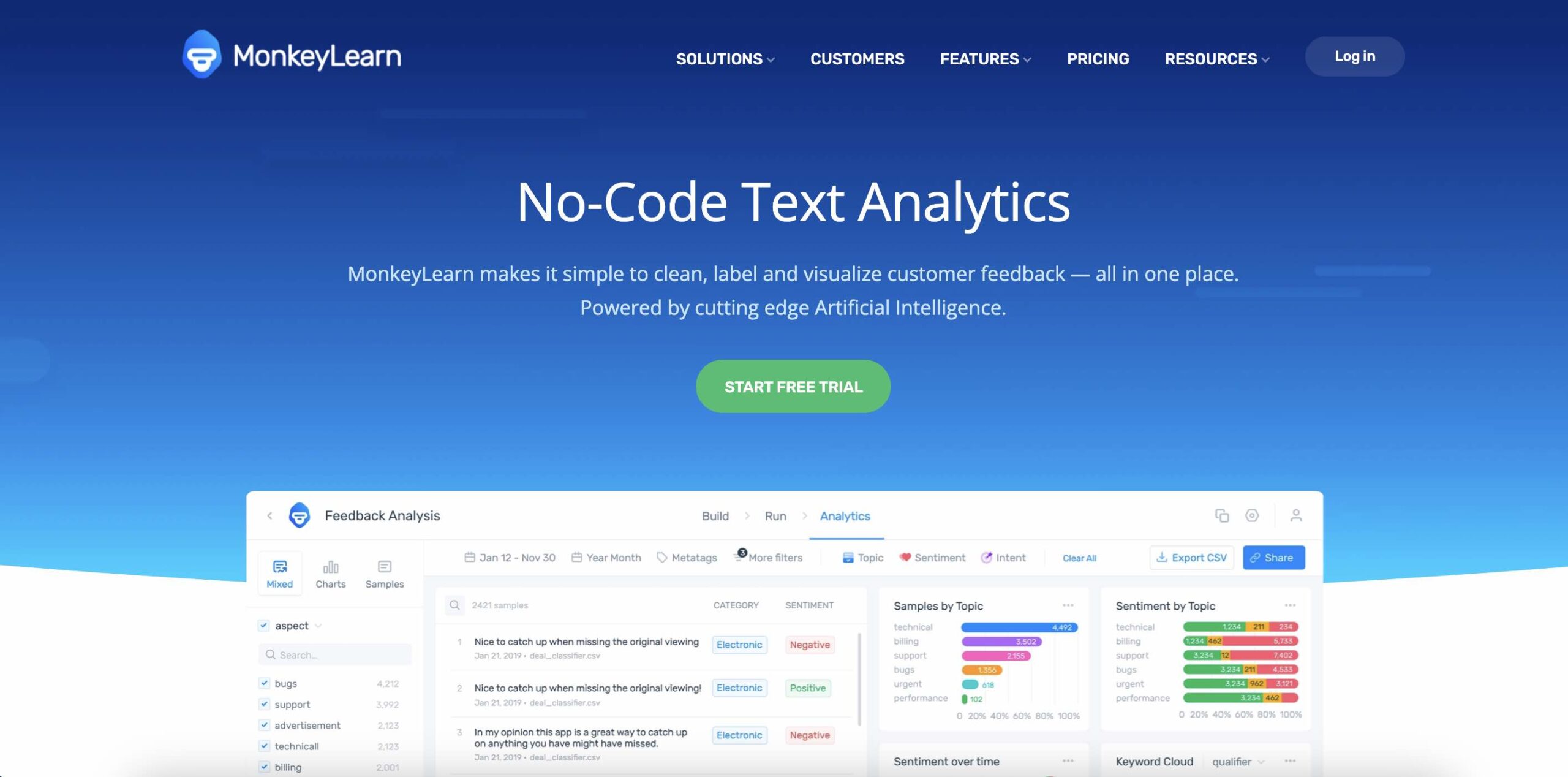
MonkeyLearn was founded in 2014 to make ML and NLP more attainable for companies everywhere. Its solutions are geared towards labeling and visualizing customer feedback. Users can input emails, surveys, reviews, support tickets, and more to create tags in order to connect to visualization tools and analyze data.
Input types supported: Text
Output types: Classification, named entity extraction
Use-case examples: MonkeyLearn’s clients include Dell, which has used the platform to save time on employee satisfaction survey analysis, plus numerous other companies who have used MonkeyLearn to simplify customer feedback, process support tickets, and more.
Obviously
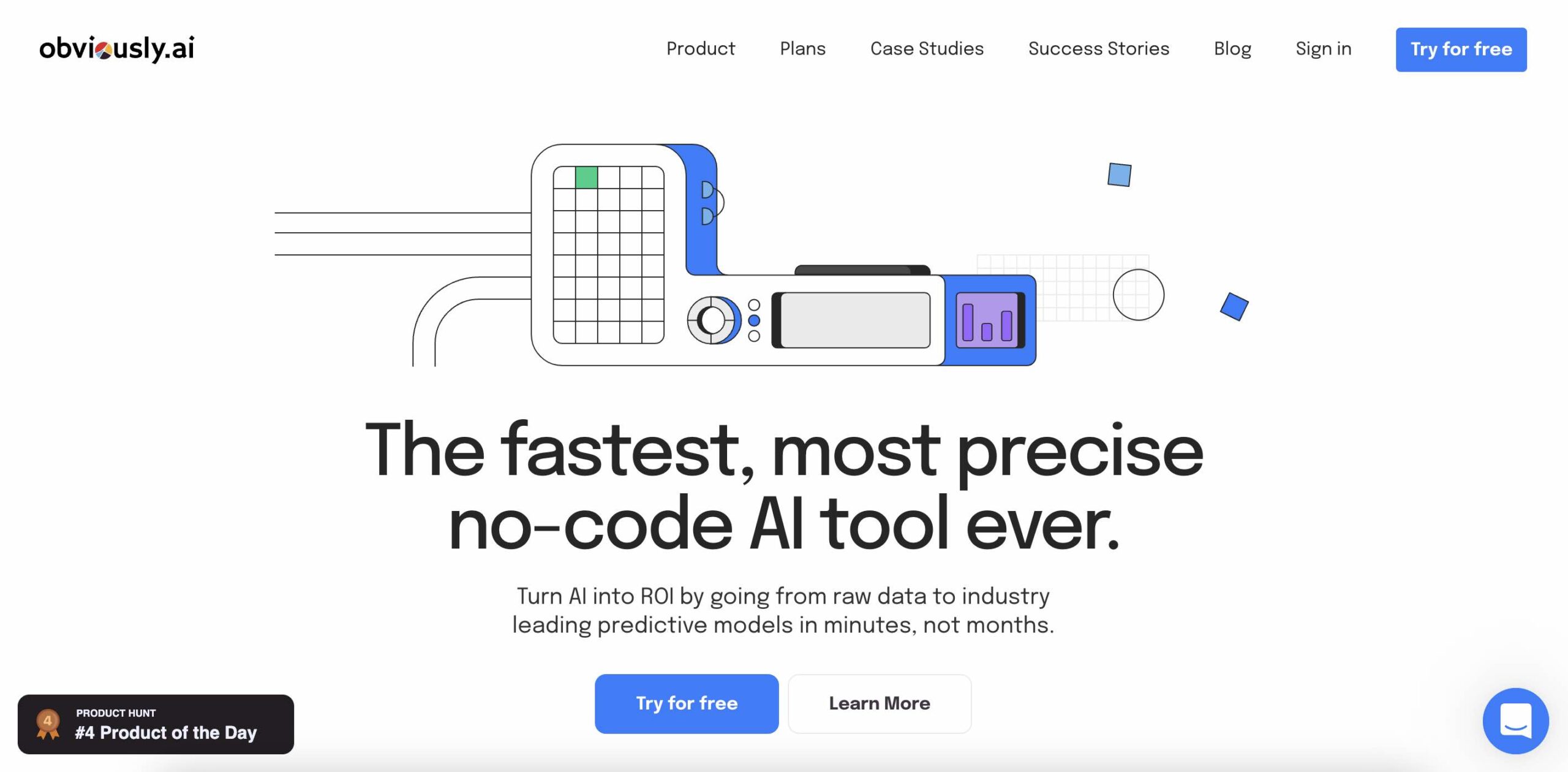
Obviously was launched in 2018 to help users predict outcomes in a matter of minutes with a minimal amount of data. Its AutoML turns raw data into predictions by building a custom-tailored model while its Time Series product predicts values (such as sales, demand, and web visits) down to a specific date.
Input types supported: Tabular, text, time series
Output types: Classification, regression
Use-case examples: Obviously’s products have been used to predict churn, detect fraud, analyze credit risk, and other business-related data. It has helped trading company Max Van build a trading bot to predict stock prices. Other success stories include LearningLenders, an ed-tech company that used Obviously to predict and boost student performance.
Datature
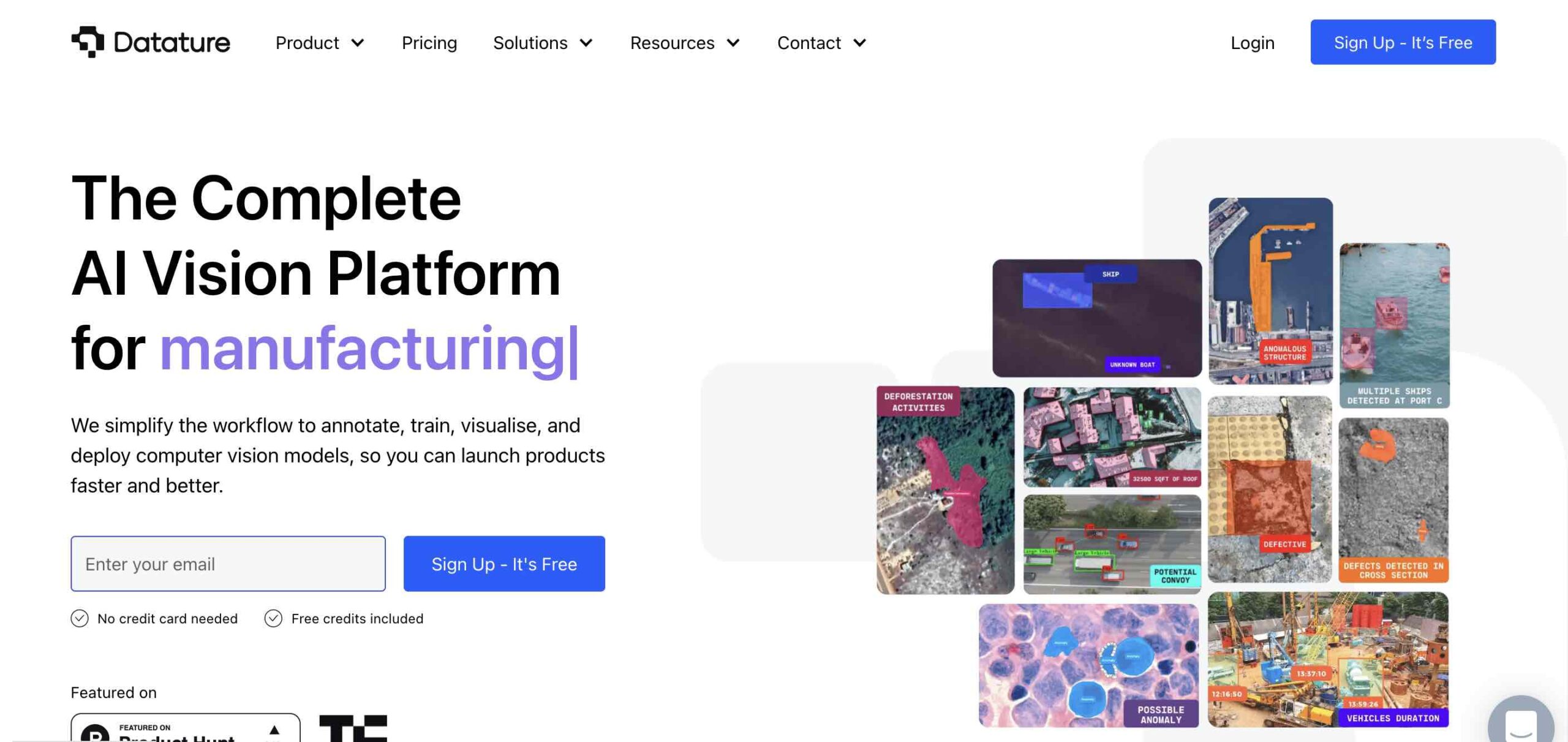
Datature, founded in 2019, is a platform for computer vision solutions dedicated to helping users launch products faster and better. It uses Nexus, a no-code AI training platform, to provide a range of services that include annotation and model training to simplify the development and deployment of computer vision solutions.
Input types supported: Image
Output types: Object detection, instance segmentation
Use-case examples: Datature automates the drug discovery process for pharmaceutical and healthcare companies, provides data-driven insights to utility and energy companies for safety assessments, and uses cutting-edge visualization to help online retailers with inventory, product search, and analytics.
Akkio
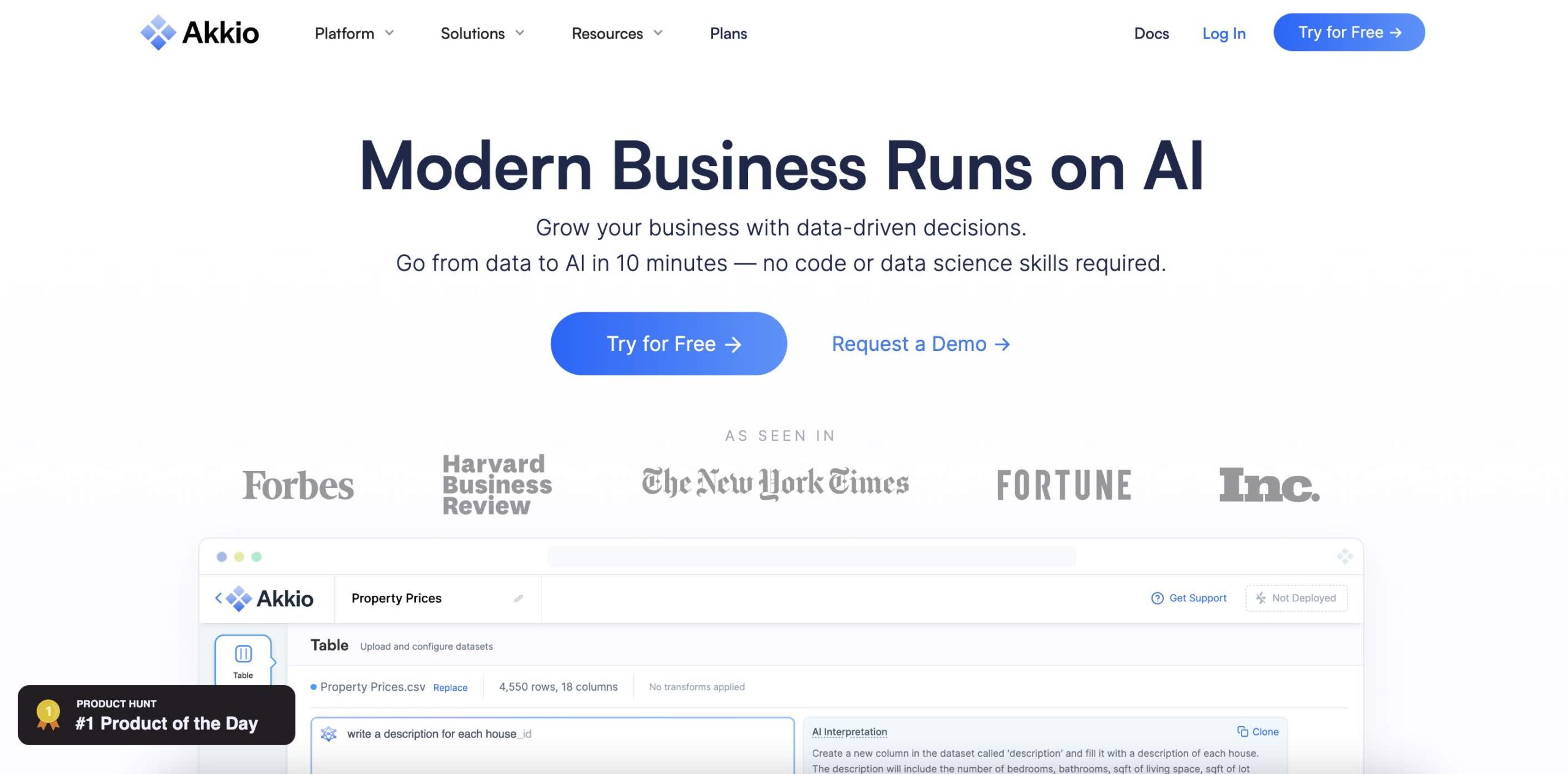
Akkio’s mission is to use AI solutions to tackle complex, intractable problems – from renewable energy to blockchain technology to cybersecurity. Founded in 2019, one of Akkio’s core values is to make AI accessible to everyone; it helps businesses grow by offering fast, data-driven solutions categorized by application.
Input types supported: Tabular, time series
Output types: Classification, regression
Use-case examples: Akkio’s solutions include augmented lead scoring, forecasting, text classification, fraud detection, cost modeling, churn reduction, employee retention, content optimization, and reducing booking cancellations. Its solutions are geared toward a wide range of roles including business analysts, data scientists, and sales and marketing operations.
Roboflow
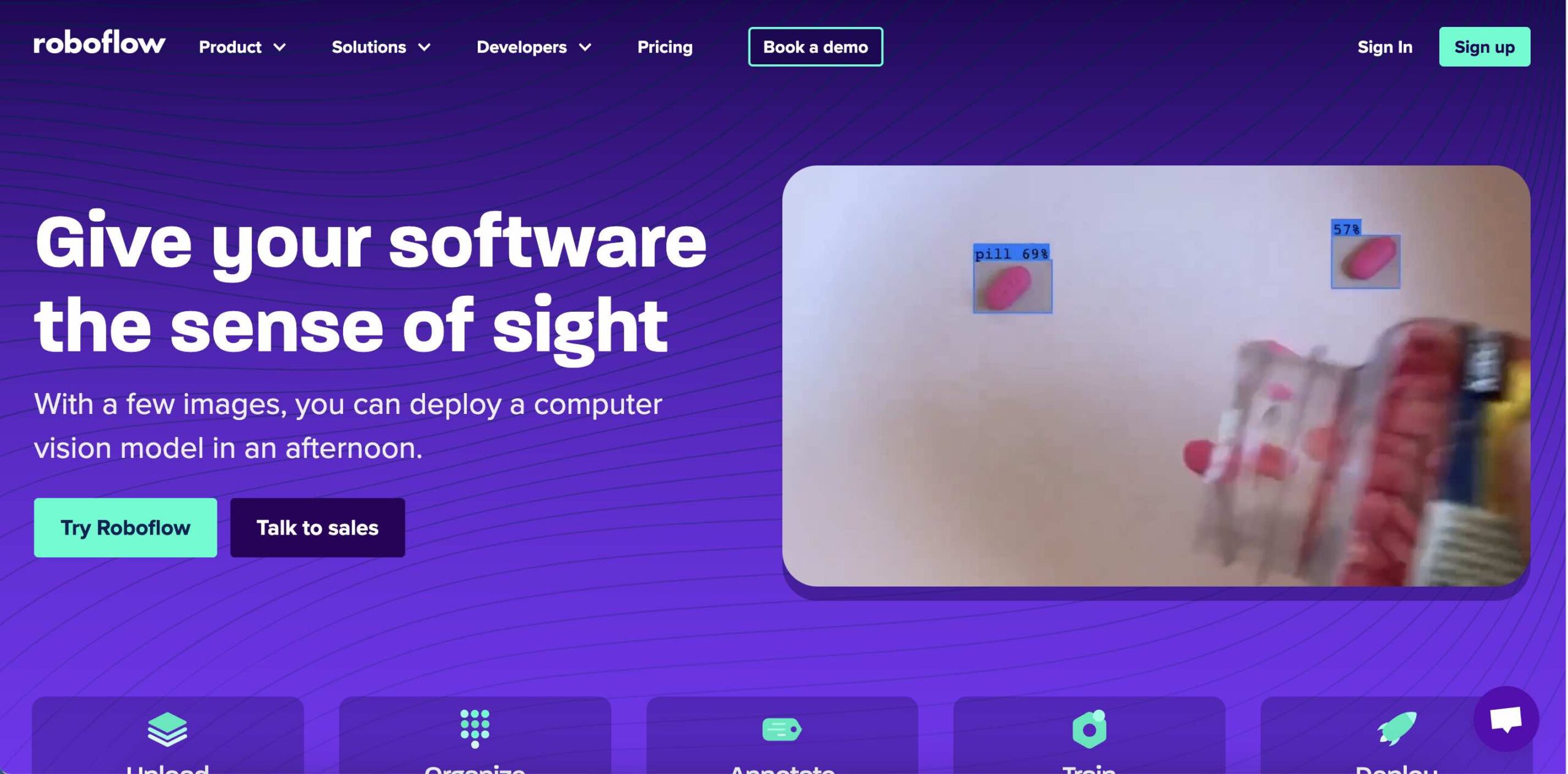
Roboflow was launched in 2020 to make computer vision more accessible to developers. It offers a large pool of pre-existing datasets, and other products include annotation, deployment, and training custom models.
Input types supported: Image
Output types: Classification, tagging, object detection, instance segmentation, semantic segmentation
Use-case examples: Roboflow’s solutions include satellite and drone footage in aerospace and defense, identifying plant and crop diseases in agriculture, and improving both product quality and worker safety in manufacturing.
ML for your startup without ML expertise
Hopefully, we’ve convinced you at this point that you don’t need any experience in ML to begin using it as a solution to your startup’s needs.
In fact, many (if not all) of the platforms we mentioned here are specifically designed for users who don’t have any ML background but nevertheless understand its growing importance for their business needs.
Considering the wide range of platforms out there, along with the inputs they support and solutions they offer, with a little bit of research you should be able to find the perfect fit for you.
About Nyckel
Nyckel is building a fast, powerful and ergonomic API for custom machine learning. Replacing the need for a machine learning team, Nyckel allows developers to add state-of-the-art machine learning to their applications in minutes. We’re backed by Y Combinator, based in California and growing ambitiously.


Gust Launch keeps your docs straight and cap table clean for whenever your first raise is.
This article is intended for informational purposes only, and doesn't constitute tax, accounting, or legal advice. Everyone's situation is different! For advice in light of your unique circumstances, consult a tax advisor, accountant, or lawyer.

